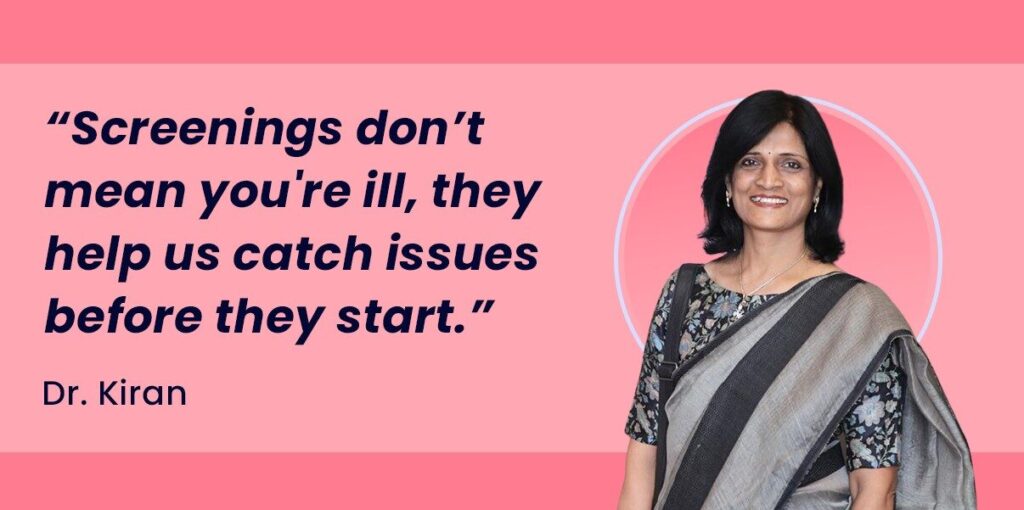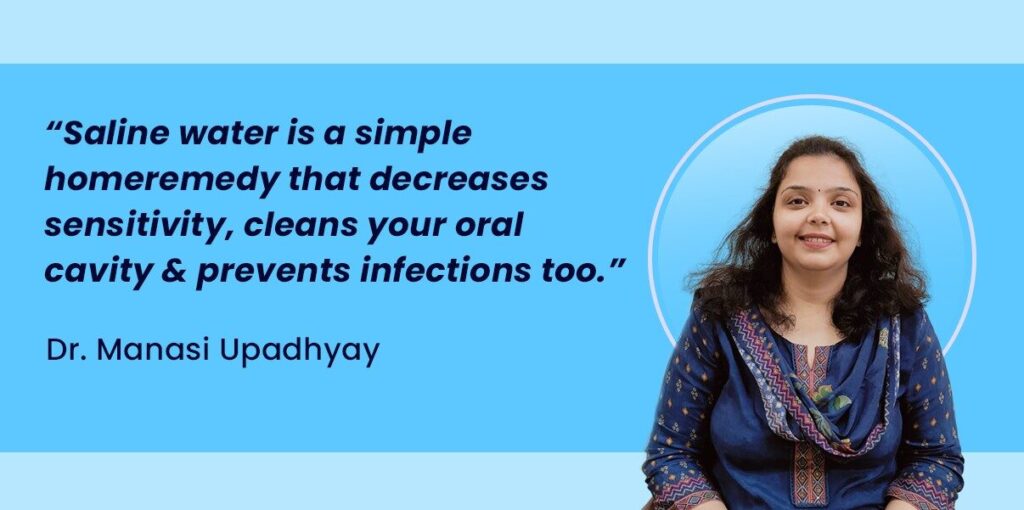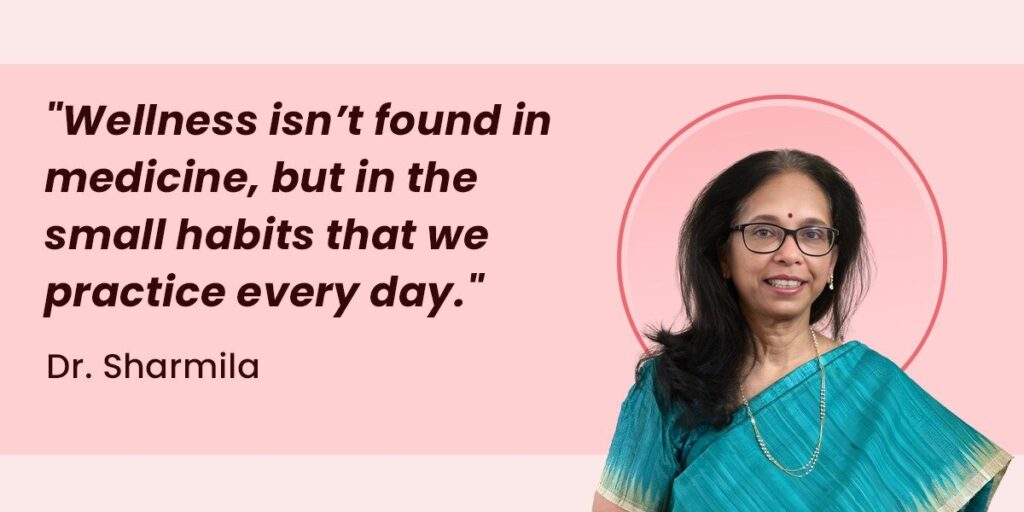In today’s world, women have different responsibilities and take up numerous duties. However being caught in the schedule and the to-do list, personal health most of the time takes the backseat. But preventive care is not selfish, it’s a necessity.
So here is a concise, user-friendly guide to the top 10 health screenings all women should familiarise themselves with, recommended by Dr. Kiran Gupta, who is not only an experienced doctor but also a valued member of our Habuild community.
1. Pap Smear
Routine Pap smear tests are very important for women of age 35 and above, and should be repeated once in 3 years. The test is done as a screening for cervical cancer, which is one of the common cancers encountered in Indian women.
But why is all of this so important?
“If detected in time, the cervical cancer can be 100% cured. The real symptoms generally occur 10 years after the first positive reading in the Pap smear,” informs Dr. Gupta.
In conjunction with HPV DNA testing, the screening interval can also be prolonged further, allowing for an interval of up to 10 years of safety between tests.

2. Breast Exam and Mammography
With respect to the breast health, the following three checks are important:
- Self examination- The first is getting to know your own body. Routine self examination once per month, preferably 7 to 10 days after your menstrual period, will allow you to catch changes early if they are abnormal. Self examination acquaints you with how your body feels and looks normally. The more you know your breasts, the better you’ll know if something doesn’t feel right.
- Clinical breast exam- The other is the clinical breast exam conducted by the healthcare provider. Routine visits of this nature can identify physical abnormalities like lumps, puckering, or abnormal discharge which the woman may overlook in the course of her self examination.
- Mammography- Next comes the most important, Mammography. It is the radiological screening able to detect the signs of cancer even if the physical symptoms have not yet appeared. It is therefore the best tool of early detection. Annual mammography after age 35 is most recommended, especially for individuals who have a family history of breast cancer.

3. Pelvic Ultrasound
Pelvic Ultrasound is recommended for women aged 40 and above. It is a sonography of the lower abdomen to determine abnormal conditions of the uterus, ovaries, and nearby organs.
This test is important especially if you have:
- Intermenstrual or post coital bleeding
- Severe pain during intercourse
- Irregular menstrual cycles
- Any foul smelling whitish vaginal discharge
- Severe pain during menstrual cycle
While these symptoms might seem minor or easy to ignore, they are in no way to be overlooked. An ultrasound will give reassurance, clarification, and in the vast majority of cases, early diagnosis to permit easier and more effective treatment.

4. Bone Density Test
Bone health is something that often gets ignored until it’s too late. Bone density screening should be done at least once a year, especially for women who are approaching menopause. It is useful in diagnosing osteopenia or osteoporosis, that is, the conditions in which there is a high risk of fracture.
In addition, the calcium, vitamin D and protein levels in the blood should also be measured especially if a woman is around the time of perimenopause because during hormonal changes, bone density usually drops significantly.

5. Lipid Profile
Heart disease is the leading cause of death of women around the world. That’s why it is very important to undergo lipid profile tests once in 6 months for women above the age of 35. This test can also be used to monitor your cholesterol levels and manage the risks associated with heart disease.
“A healthy heart is the most important thing in life,” says Dr. Gupta. Eat a high protein, low fat diet, exercise regularly, sleep well, meditate and be social. By getting early screenings and building healthy habits, women can help to protect their heart for years to come.

6. Pre-Pregnancy Screenings
If you’re planning on having a family, pre-pregnancy testing is a must. A series of tests are recommended that ensure the health of both mother and baby throughout pregnancy.
Key tests include:
- TSH (Thyroid) – this is to check whether hormones are at proper balance.
- Hepatitis B & C, HIV – for early detection of infections.
- Fasting and Postprandial Blood Sugar (FBS/PPBS) – for detection of diabetes.
- Thalassemia & sickle cell anaemia – to test for inherited blood diseases.
- Genetic testing – especially if there’s a family history of congenital abnormalities.
These tests are preventive, preventative for complications and enable your baby to have the best possible start.

The Role of Family History and Genetic Testing
Family history factors heavily into the health of a woman, and especially into the development of conditions like breast and ovarian cancer. If you have family members who’ve had these cancers, Dr. Kiran Gupta says, you should consider getting tested for BRCA1 and BRCA2 mutations.
And if such gene mutations are detected, doctors may also recommend preventive surgeries like prophylactic mastectomy or ovary removal, to lessen future risk. Although such choices are very personal, early screenings can help make these decisions easier and also offer more control over your health journey.

Wrapping it Up
One of the largest obstacles people encounter is hesitation. Lots of women aren’t getting screened simply because they are too afraid or too falsely confident that “It won’t happen to me.”
The number one myth is that you only go for a screening if you think something’s wrong. In fact, they are your best line of defense against disease.
Moreover, it’s not just checkups that are important. Your daily habits do, too. One of the most effective preventive actions is movement. It helps women in so many ways right from hormonal balance to long term bone and heart health. Even low intensity, daily movement like yoga can help you stay fit, build strength and keep your body and mind healthy.
And if you don’t know where to begin, you can always choose to start off with Habuild’s 14 Day Free Yoga which will help you ease into it and help you progress day by day.
Your health is your best investment. Prioritise it and invest in preventive care. And as always, prevention is so much better than cure.
Make that appointment. Do that test and listen to your body. And most importantly, take care of yourself. You deserve it.






